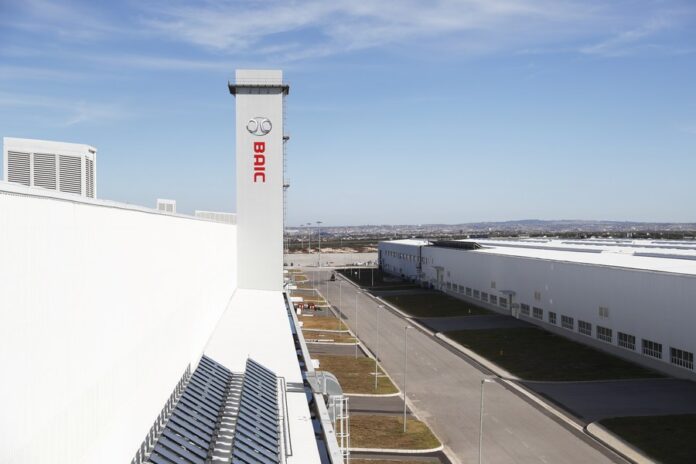According to African scholars and authorities, China has adopted a growth path that features win-win collaboration and mutual advantages, not least with other developing countries, as a member of the Global South.
JOHANNESBURG (Xinhua) : In the beautiful surroundings of the City of Cape Town, South Africa, a place known for a long time as the “forgotten town” called Atlantis underwent a dramatic transformation approximately 10 years ago.
The construction of a Hisense factory in the center of this formerly tranquil town served as the catalyst for this transition. Atlantis had been inert under the shadow of Cape Town before the arrival of the Chinese producer of electronics and appliances, with its promise going unrealized.
Beijing Automotive Industry Corporation (BAIC), a Chinese manufacturer, has been producing vehicles in its South African facility close to the Port Elizabeth auto export hub since 2018. Atlantis is located around 700 kilometres to the east of this location.
The large industrial complex known as BAIC not only houses state-of-the-art equipment for the manufacture of automobiles, but it also significantly contributes to the local labor force’s employment options.
Among the numerous Chinese businesses involved in regional economic growth in Africa are Hisense and BAIC. African scholars and officials who spoke with Xinhua claimed that China, as a member of the Global South, has adopted a growth path characterized by win-win cooperation and mutual advantages, not least with other developing countries.
Stephen Ndegwa, a lecturer in international relations at the Nairobi-based United States International University-Africa, said: “Thanks to China, Kenya has definitely seen a lot of infrastructure development under the Belt and Road Initiative (BRI).”
A project like the BRI “cannot succeed without amity, sincerity, and honesty,” he said, adding that “we’ve seen infrastructure developments including ports, dams, road extension, and even new highways and railroads, all of which have significantly contributed to Africa’s social and economic growth.”
President Xi Jinping of China reaffirmed China’s commitment to advancing the shared interests of the Global South in international affairs on Tuesday.
China has steadfastly upheld the common interests of developing countries and worked to increase the representation and voice of emerging markets and developing countries in international affairs. As a developing country and a member of the Global South, China shares the same air with other developing countries and pursues a shared future with them.
At the BRICS Business Forum 2023, Xi delivered his comments in a speech that was read aloud by Wang Wentao, China’s minister of commerce.
Siazongo Siakalenge, the deputy secretary to the cabinet for finance and economic development in Zambia, praised China for its assistance in promoting industrial development in African nations.
He said China is helping other developing countries “to give them the opportunity not only to create products locally but also to access both the Chinese and global markets” because the bulk of African countries have a severe infrastructural deficit.
“Xi gave an excellent speech. The developing world now has a lot of promise, according to conference participant Siakalenge. China advocates for equitable development not just in the Global South but also globally.
The Belt and Road Initiative, the Global Development Initiative, the Global Security Initiative, and the Global Civilization Initiative are just a few of the global public goods that China has proposed over the past ten years.
While the Global South and China have partnered to advance world peace and prosperity, some in the West have been hell-bent on spreading misinformation, accusing China of “attempting to disrupt the world order.”
The Nelson Mandela Foundation employee Thabo Sephuma stated, “The Global North is just panicking.” The Global North is attempting to defend its staple food, but we also need to raise our own.
A broadcast journalist in South Africa named Peter Ndoro lamented that “for a very long time, (our) voice has not been heard (or) taken seriously, and certain rules were made without (our) consultation.”
“Once you start to aggregate all of the (Global South) nations together, you start to realize we actually have common issues, common problems, common hopes and ambitions, and there are things we [the Global South] would like to see changed in the world,” Ndoro added.
He claimed that when nations band together to form an alliance, such as the Global South, that voice suddenly becomes unavoidable.


